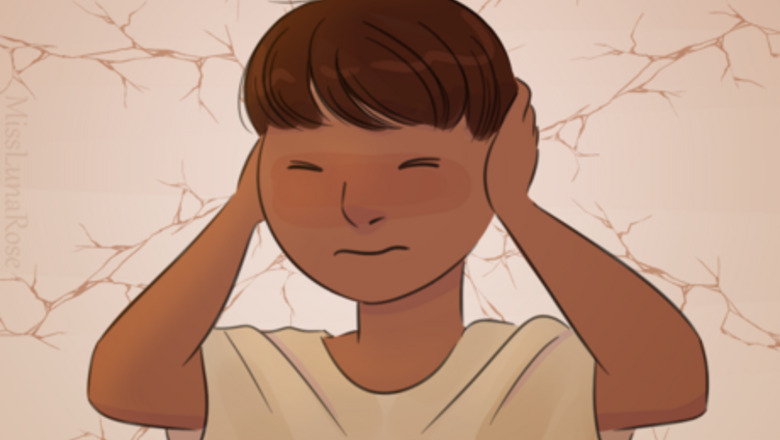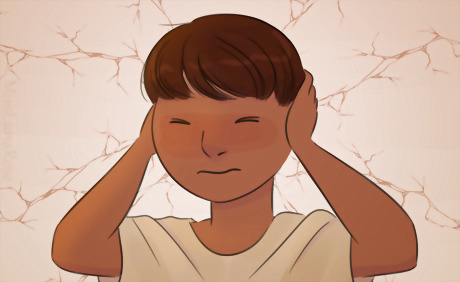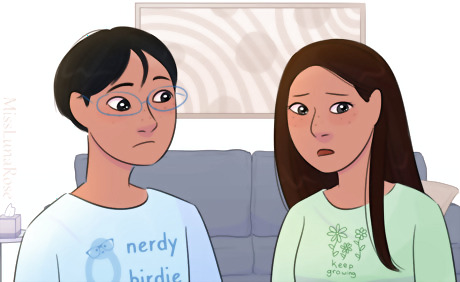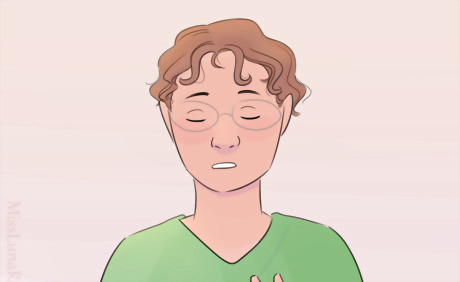
views
Understanding the Issue

Understand why emotion regulation can be difficult for some autistic people. To an autistic person, the world can be an overwhelming and confusing place full of people who aren't always very kind. This can be stressful. The autistic person may have to put up with several or all of the following: Strong, sometimes overwhelming emotions Difficulty recognizing their feelings due to alexithymia Painful sensory issues Communication struggles Co-occurring conditions like anxiety, depression, complex PTSD, and other things that can be difficult Sensitivity to injustice Stress related to living in a challenging world People perceiving them more negatively, and thus being less friendly to them

Consider other possibilities too. Sometimes autistic people get mistaken for being angry when they aren't. Check the context before jumping to a conclusion. It's possible the autistic person may be dealing with... Poor motor skills: If they're always slamming doors or jamming things together, it might mean that they just struggle with motor skills. Anxiety: Sometimes autistic people seem tense or avoid a demand because they're stressed about a situation. If you're placing a demand on them and they seem "angry" or "defensive," maybe they're anxious about it. Try investigating why they're nervous about it and what could make things easier. Mismatched tones or facial expressions: Some autistic people may make faces that don't match what they're feeling, or not realize that their tone of voice is perceived as angry or loud. If the person regularly is mistaken for feeling things they actually aren't, it may simply be a difference in their body language. Stimming: Slamming or hitting things, stomping, crushing things in their hands, or screaming can be a stim for some hyposensitive autistics. If there isn't any context for this behavior, it might be a sensory need, not anger.

Know that some autistic people often suffer in silence, especially if they were late-diagnosed or discouraged from sharing their feelings. Autistic people may grow up hearing that they are too sensitive and too demanding. Thus, they learn to say nothing when they are stressed or in pain, because other people will likely get upset with them. The autistic person may be much more stressed than they let on. Some autistic people are trained not to frown or act unhappy in ABA therapy, making it difficult for them to express themselves at all. If you suspect that an autistic loved one tends to suffer in silence, encourage them to be assertive and tell you things like "I'm stressed" or "That hurts." If they do speak up, pay attention and thank them for telling you. This can help teach them that it's okay to ask for help when they don't feel okay.

Try asking what's wrong. The easiest way to tell what's bothering someone is to just ask them. If the person has difficulty expressing themselves in words, try getting them to write, type, or use a form of Augmentative and Alternative Communication (AAC). Ask something like... "What's wrong?" "Are you stressed?" "I'm having trouble reading your body language. Is something bothering you?" "I noticed you stomping your feet and clenching your fists. I'm guessing you feel angry. What's going on?"
Helping Out

Know how to intervene in a meltdown. A meltdown is a neurological crisis, and your loved one needs to go somewhere safe and quiet. Talking to them will not help, because they are at their wits' end. Keep your calm and remove them from the stressful situation. Take them somewhere quiet. Go to a quiet room or a quiet place outdoors. Reduce sensory input as much as possible. Remove all demands. Don't let other people pester them or get in the way. Never touch them without clear permission. If they show you that they want to be touched, use a firm hand, and try offering a tight hug. (This is calming if it's wanted.) Talk as little as possible. Keep yourself safe if they're acting aggressive. Don't grab them or get in the way. Give them space. (They don't want to hurt you.) Leave the room if needed. Give them at least half an hour to calm down.

Ask how you can help if they're able to think straight (not in a big meltdown). The autistic person may or may not be able to figure out and verbalize exactly what they need. It can be helpful to prompt them with various ways you could help, and let them tell you what they need. Try asking "Do you want to talk to me about it, talk to someone else, do a distraction, or be alone for now?" (If this is too much at once, ask each part as a separate question.)

Speak calmly and comfortingly. Sometimes, acceptance and reassurance is what they need most. Use a calm voice and body language to help them know that it's okay to be angry, and you aren't judging them for it. If you act calm, it will help them feel calmer.

Listen well and empathize with them. Even if the cause of their anger seems strange to you, it's important that they know you care about their feelings. Show them that you take their problems seriously by validating their feelings. Here are some examples of validating statements: "I can see that you're really stressed." "That sounds upsetting." "I see." "That would make me angry too." "You seem frustrated/mad/disappointed/etc." "So you're upset because... (summarize as best as you can)?"

Respect their boundaries. Sometimes people forget that autistic people have boundaries too, or that their boundaries may be different. When in doubt, ask first, and always respect the answer they give you. This is key to de-escalating the situation and showing you care about their feelings. Only touch them with permission. Uninvited touch may startle or upset them due to sensory issues. If you want to hug them, you can ask permission or spread your arms and see if they come to you. Let them be alone if they want to be alone.

Offer something calming. You can try to comfort them with their favorite music, a stim toy, their favorite blanket, or whatever comfort item they want. There are lots of things that you could do. If you know how they prefer to calm down, do everything you can to help set the scene for that. Some people have a calming down corner or hate box for this purpose. Offer to help them use calming techniques.

Offer them choices. This helps because they feel more in control, and it reminds them that you care about what they want. Here are some examples of choices you can offer: "Would you like to sit down?" ("No? Okay, we'll stand.") "Which stim toy would you like?" "Would you like me to get you a drink?" "We have water, chocolate milk, and soda. Which one do you want?" "Would it help if we did some relaxation exercises together?" "Do you want a hug?"

Offer to help them fix it. If they want solutions, try to help them come up with their own ideas. Avoid giving unsolicited advice, because it may feel like you're criticizing them for not thinking of different solutions. Instead, present them as options, such as "Would it help if we _______?" or "What do you think could make it better?" Let them direct the flow of the conversation. If you can develop an action plan together, this will help them feel calmer. If they say no, that's okay. Maybe they just need to vent or be alone. They'll come to you if they need you. If this process upsets them, ask if they would like to take a break from brainstorming and do something relaxing.

Recognize your limits. Sometimes you might not know how to help them when they're angry, or you might be too stressed to be helpful. You are not responsible for their feelings. It's okay to remove yourself from the situation or say "I need to take a break" and come back once you are calmer. You can also call a caregiver or loved one who might know how to handle the situation better. If they are self-injuring, see if you can redirect it or soften it. (For example, place a pillow between their head and the table, or have them head-butt the couch cushions instead of the wall.) Avoid forcibly grabbing them, because they may panic and lash out at you. If you live in the United States, do not call the police for help. They may make things even worse and hurt or traumatize your loved one.

Expect them to need some quiet time afterwards. This may be doing something relaxing with you, or being alone. It may take a while for them to calm down and feel better. Stay patient and understanding. Offer your support, and let them do what they need to do.




















Comments
0 comment